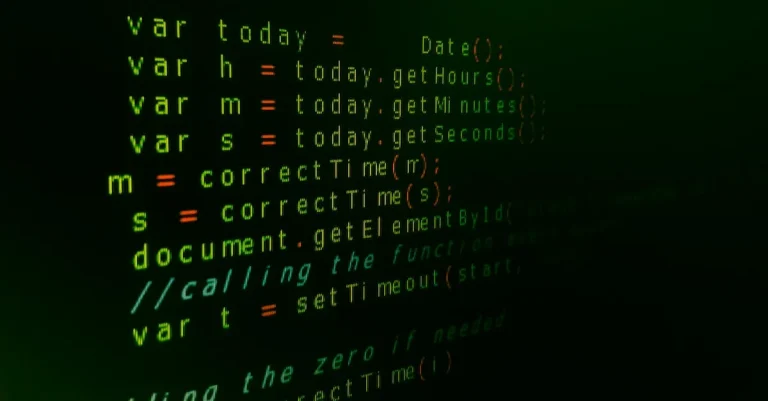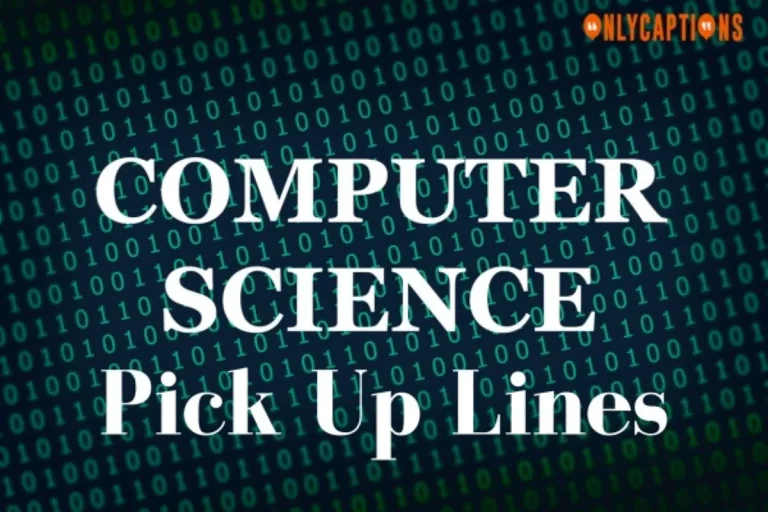Is The Hunger Games Science Fiction? Examining The Genre
The Hunger Games trilogy by Suzanne Collins was a hugely popular YA dystopian series. But with its futuristic setting, many wonder – is The Hunger Games considered science fiction? While it contains some sci-fi elements, most categorize the series as dystopian fiction that uses just enough speculative concepts to create its disturbing world.
If you’re short on time, here’s a quick answer: The Hunger Games is generally classified primarily as dystopian fiction rather than pure science fiction, with minor sci-fi influences that help build its dystopian future.
Defining Science Fiction
Science fiction is a genre that encompasses a wide range of themes and concepts. It is often characterized by its exploration of speculative futuristic ideas, advanced technology, and the impact of these elements on society. Let’s delve deeper into these defining characteristics of science fiction.
Speculative Futuristic Concepts
One of the key aspects of science fiction is its ability to imagine and speculate about the future. It pushes the boundaries of what is possible and explores what the world might look like years from now.
From space exploration to time travel, science fiction takes us on thrilling journeys to worlds we can only dream of. The Hunger Games, although set in a dystopian society, also incorporates elements of speculative futuristic concepts by envisioning a world where children are forced to fight for their survival in a televised event.
Advanced Technology Themes
Advanced technology is another hallmark of science fiction. It showcases the potential of human innovation and how it can shape the world we live in. Science fiction often introduces us to futuristic gadgets, artificial intelligence, and mind-bending scientific advancements.
In The Hunger Games, we see the use of advanced technology through the creation of the arena, the Capitol’s surveillance systems, and the genetically modified creatures that pose a threat to the participants.
These technological elements add depth to the story and contribute to the overall science fiction feel.
Exploration of Impact on Society
Science fiction stories not only entertain us with their imaginative concepts, but they also make us reflect on the impact these ideas can have on society. They often serve as a commentary on current social issues or offer a glimpse into possible future scenarios.
The Hunger Games explores themes of power, inequality, and the exploitation of the underprivileged by the privileged. It prompts us to question the consequences of extreme societal divisions and how they can lead to rebellion and revolution.
Sci-Fi Aspects of The Hunger Games
Futuristic setting in Panem
The Hunger Games, written by Suzanne Collins, is undoubtedly a science fiction novel. One of the key sci-fi aspects of the story is its futuristic setting in Panem, a dystopian nation located in what was once North America.
The author paints a vivid picture of a society that has advanced far beyond our own, with technological advancements and societal changes that are both fascinating and terrifying. From the Capitol’s extravagant lifestyle to the impoverished districts, the world of Panem is a stark reminder of the potential consequences of unchecked power and inequality.
High-tech surveillance and weapons
In The Hunger Games, high-tech surveillance and weapons play a crucial role in the story. The Capitol uses advanced technology to monitor and control the citizens of Panem, reinforcing their hold on power.
From the tracker jacker wasps to the Gamemakers’ control over the arena, the use of technology in the book is both innovative and unsettling. It raises important questions about the ethical implications of such advancements and the potential dangers of a surveillance state.
Genetic engineering muttations
Another significant sci-fi aspect of The Hunger Games is the inclusion of genetic engineering muttations. In the arena, the tributes face a variety of deadly creatures created through genetic manipulation.
These muttations are hybrid creatures designed to terrify the tributes and pose a threat to their survival. The concept of genetic engineering raises ethical concerns and explores the boundaries of science and its impact on the natural world.
It also serves as a reminder of the potential consequences of tampering with nature.
Dystopian Fiction Characteristics
Dystopian fiction is a genre that explores imagined societies in which individuals face oppressive and often nightmarish conditions. These stories serve as cautionary tales, warning readers about the potential consequences of unchecked power and societal control.
The Hunger Games, while often categorized as science fiction, exhibits several key characteristics of dystopian fiction.
Oppressive totalitarian regime
In The Hunger Games, author Suzanne Collins presents a society known as Panem, where a powerful and oppressive government known as the Capitol rules over twelve districts. The Capitol maintains control through fear, surveillance, and strict regulations imposed on its citizens.
This characteristic aligns with the hallmark of dystopian fiction, as it portrays a society where individual freedoms are severely restricted and citizens are subjected to the whims of a totalitarian regime.
Struggle against tyranny
One of the central themes in dystopian fiction is the struggle against tyranny. In The Hunger Games, the protagonist, Katniss Everdeen, becomes a symbol of resistance as she defies the Capitol’s oppressive rule.
Through her acts of rebellion and defiance, Katniss inspires others to question the authority and fight for their freedom. This theme of resistance and the fight against an unjust system is a common thread in dystopian literature.
Social commentary and warning
Dystopian fiction often serves as a form of social commentary, providing a critique of current societal issues and warning readers about potential future outcomes. The Hunger Games reflects this characteristic by addressing themes such as inequality, class divide, and the dangers of unchecked power.
By presenting a world where the wealthy and privileged exploit the less fortunate, Collins prompts readers to reflect on the social and political structures in their own lives.
Thematic Focus on Tyranny
The Hunger Games, while categorized as science fiction, delves deep into the thematic focus of tyranny. It explores a dystopian premise of brutal authoritarianism, where a totalitarian government known as the Capitol controls Panem, a post-apocalyptic nation divided into districts.
The citizens of these districts are subjected to oppression, poverty, and limited freedoms, setting the stage for a compelling story of resistance and survival.
Dystopian premise of brutal authoritarianism
In this dystopian world, the Capitol exerts its dominance over the districts by enforcing an annual event called the Hunger Games. This event involves selecting one boy and one girl from each district to participate in a televised battle to the death.
The purpose of the Hunger Games is not only to entertain the Capitol’s citizens but also to remind the districts of their powerlessness and to suppress any thoughts of rebellion. The dystopian premise of brutal authoritarianism in The Hunger Games serves as a cautionary tale, highlighting the dangers of unchecked power and control.
Battle for liberty and justice
The Hunger Games showcases a battle for liberty and justice, with the protagonist, Katniss Everdeen, leading the charge. As a tribute from District 12, Katniss becomes a symbol of hope and defiance against the Capitol’s tyranny.
Throughout the series, she fights not only for her own survival but also for the liberation of her people. The story explores themes of resistance, sacrifice, and the fight for a better future. It raises questions about the price of freedom and the lengths one is willing to go to challenge injustice.
Critique of power, sacrifice, and surveillance
The Hunger Games offers a critique of power, sacrifice, and surveillance. It portrays the Capitol’s obsession with control, using sophisticated technology and surveillance to monitor and manipulate its citizens.
The series raises important ethical questions about the invasion of privacy and the abuse of power. It also explores the concept of sacrifice, as the characters are forced to make difficult choices in their quest for freedom.
The Hunger Games serves as a powerful reminder of the consequences of unchecked authority and the importance of individual autonomy.
Limited Scientific Explanations
When examining whether The Hunger Games can be classified as science fiction, one of the key factors to consider is the presence of scientific explanations within the story. Unlike some other science fiction works that delve into intricate details of advanced technology or theoretical concepts, The Hunger Games provides limited scientific explanations.
Surface-level sci-fi concepts
In terms of scientific concepts, The Hunger Games primarily relies on surface-level sci-fi concepts that are easily accessible to a wide range of readers. These concepts include futuristic technologies such as hovercrafts, force fields, and genetically modified animals.
While these elements contribute to the dystopian setting of the story, they are not explored in great detail or explained with scientific rigor.
Plot focused on political and social structures
Rather than delving into intricate scientific explanations, The Hunger Games places a greater emphasis on exploring political and social structures. The story revolves around the oppressive Capitol and the rebellion of the districts, highlighting themes of power, control, and social inequality.
The focus on these aspects of society, rather than the scientific intricacies, aligns The Hunger Games more closely with the dystopian fiction genre than traditional science fiction.
Minimal technobabble or hard science
Unlike some hard science fiction novels that heavily rely on technobabble and intricate scientific explanations, The Hunger Games takes a more minimalist approach. The story does not overwhelm readers with complex scientific jargon or detailed explanations of futuristic technology.
Instead, it prioritizes character development, societal critique, and the emotional journey of the protagonist, Katniss Everdeen.
Classification in Literary Context
When discussing the genre of “The Hunger Games,” one must consider its classification in the literary context. While it is often marketed and shelved as dystopian fiction, some argue that it also falls under the umbrella of science fiction. Let’s explore this classification further.
Marketed and shelved as dystopian fiction
“The Hunger Games” is primarily marketed and shelved as dystopian fiction. Dystopian literature portrays a futuristic society that is oppressive, often with a totalitarian government, and focuses on the struggles of the protagonist against this oppressive regime.
In the case of “The Hunger Games,” we see a post-apocalyptic world where the government controls its citizens through an annual televised event in which teenagers fight to the death. This dystopian setting is a central element of the story and aligns with the characteristics of the genre.
Compared to works like 1984 and Brave New World
When discussing the genre of “The Hunger Games,” it is often compared to other notable dystopian works such as George Orwell’s “1984” and Aldous Huxley’s “Brave New World.” These classic novels also depict oppressive societies and explore themes of government control and individual rebellion.
While “The Hunger Games” may not delve as deeply into political commentary as these works, it shares similar elements, making the comparison valid.
It is worth noting that “1984” and “Brave New World” are both considered science fiction novels. They envision futuristic societies and incorporate scientific and technological advancements. Similarly, “The Hunger Games” presents a future world with advanced technology, such as the Capitol’s control over the districts and the genetically modified creatures in the arena.
These science fiction elements further support the argument that “The Hunger Games” can be classified as science fiction.
Seen as reviving interest in the dystopian genre
“The Hunger Games” has also been credited with reviving interest in the dystopian genre. Following the success of Suzanne Collins’ trilogy, there was a surge in dystopian novels aimed at young adults. This renewed interest in dystopian themes and settings demonstrates the impact and influence of “The Hunger Games” on the literary landscape.
Conclusion
While The Hunger Games presents some superficial sci-fi trappings, at its core it belongs to the dystopian fiction tradition, using its dark future setting to explore themes of authoritarianism and injustice.
The limited sci-fi elements provide texture but the focus remains on the political allegory and social commentary.
In the end, genres come down to expectations – and for its emphasis on dystopian struggles over technological wonders, readers expect The Hunger Games to deliver the experience of dystopia rather than hard science fiction.







